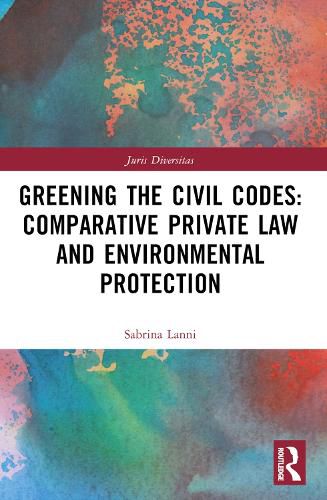Readings Newsletter
Become a Readings Member to make your shopping experience even easier.
Sign in or sign up for free!
You’re not far away from qualifying for FREE standard shipping within Australia
You’ve qualified for FREE standard shipping within Australia
The cart is loading…






This book examines the greening of civil codes from a comparative perspective. It takes into account the increasing requirements of supranational rules, which favour measures to reduce global warming and its negative environmental impacts; it discusses the necessity to expand distributive justice given the current ecological emergency; and it reflects on which private law legal tools potentially may be employed to defend nature's interests. The work fills a gap in the growing literature on developing rights of nature and ecosystem in transnational law. While the focus is on the environmental issues pertaining to the new civil codes and new projects of civil codes, the book promotes interdisciplinary research applicable to a range of environmental and natural resources-focused courses across the social sciences, especially those related to comparative law systems, legal anthropology, legal traditions in the world, political science and international relations.
$9.00 standard shipping within Australia
FREE standard shipping within Australia for orders over $100.00
Express & International shipping calculated at checkout
This book examines the greening of civil codes from a comparative perspective. It takes into account the increasing requirements of supranational rules, which favour measures to reduce global warming and its negative environmental impacts; it discusses the necessity to expand distributive justice given the current ecological emergency; and it reflects on which private law legal tools potentially may be employed to defend nature's interests. The work fills a gap in the growing literature on developing rights of nature and ecosystem in transnational law. While the focus is on the environmental issues pertaining to the new civil codes and new projects of civil codes, the book promotes interdisciplinary research applicable to a range of environmental and natural resources-focused courses across the social sciences, especially those related to comparative law systems, legal anthropology, legal traditions in the world, political science and international relations.